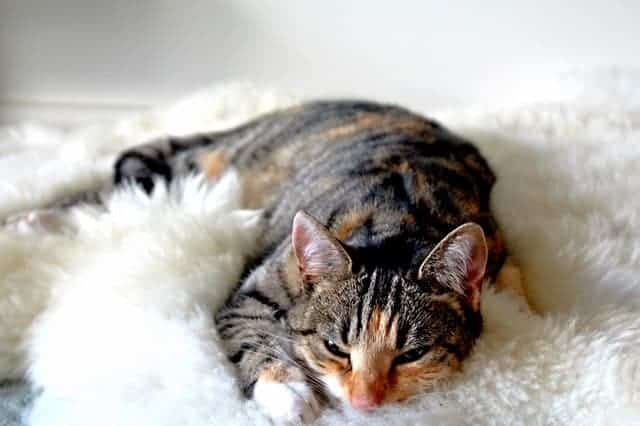Little known but very common syndrome in the feline world. Let’s see together what triaditis in cats is and how it is treated.

Triaditis in cats is a condition that consists in the presence of 2 or 3 inflammatory diseases that affect our furry friend at the same time.
This condition is not well known. However it is very common in our four-legged friends. Let ‘s see together what triaditis in cats is and what needs to be done about it.
Triaditis in cats: causes and symptoms

The triaditis is a condition that can occur in the feline, it consists in the presence of a ‘ inflammation intestinal , pancreatic and / or liver in Micio.
However, inflammation of the pancreas, intestines and liver do not occur all three at the same time. Some felines may have inflammation of the pancreas and intestines, others of the liver and intestines, and still others of the pancreas and liver.
The triaditis mainly affects the feline, as in the latter the choledochus duct and the pancreatic duct join before reaching the intestine, So the pancreas, liver and intestine are connected to each other, and the inflammation of an organ can also involve the others.
The main causes of triaditis in cats are:
- Malfunction of the sphincter of Oddi
- Vomiting (as it causes an increase in the internal pressure of the intestine when retching occurs)
- Alteration of the intestinal microbial flora
The main symptoms of this condition are:
- Nausea
- Vomiting in cats
- Diarrhea Cat
- Tiredness
- Lack of appetite
- Feline anorexia
- Weight loss
- Dehydration
- Abdominal pain
- Jaundice in the Cat
- Fever
Depending on the organs involved, our four-legged friend may have some symptoms rather than others.
Triaditis in cats: diagnosis and treatment
In the event that the cat has one or more of the symptoms listed above, it is advisable to contact the veterinarian.
If the latter suspects the presence of triaditis in the feline, he will begin to carry out complete blood tests , abdominal ultrasounds and an eventual endoscopy.
However, to have a definitive diagnosis of triaditis in cats, the specialist will perform a histopathological examination of the cat ‘s liver , intestine and pancreas.
Treatment of triaditis in felines mainly depends on the condition of the organs of the cat that have been affected. Usually the cat is hospitalized to receive the right therapy.
The latter often involves prescribing antibiotics, pain relievers, anti-inflammatories, lactic ferments, liver protectors and intravenous fluid therapy by the vet.






